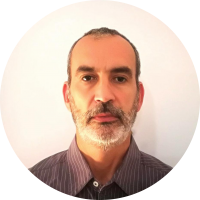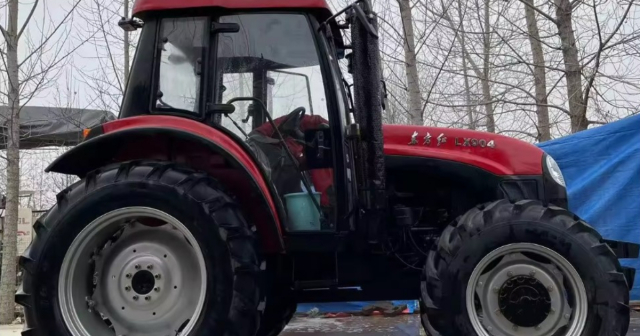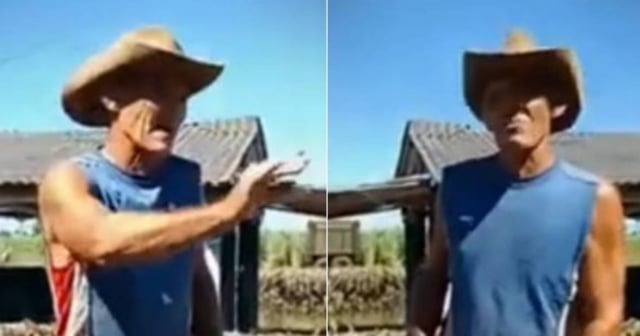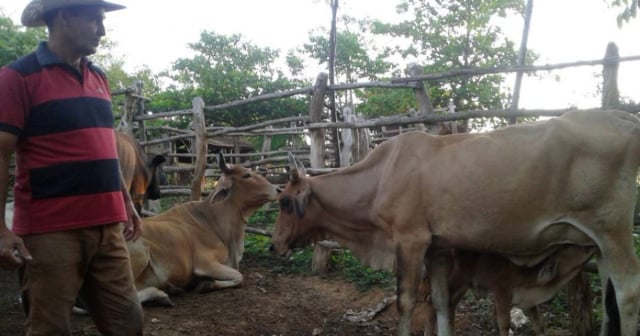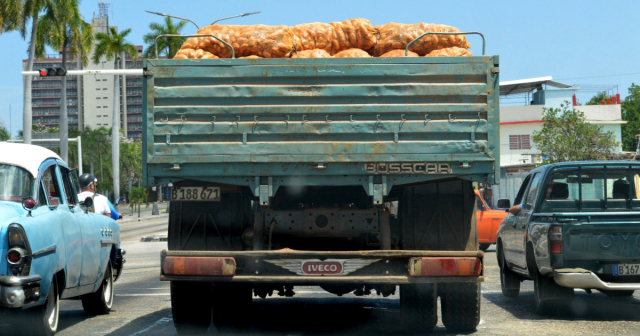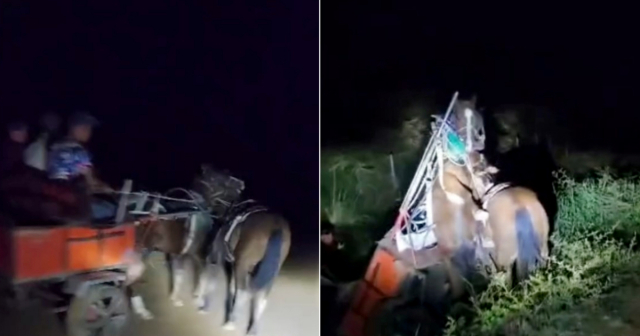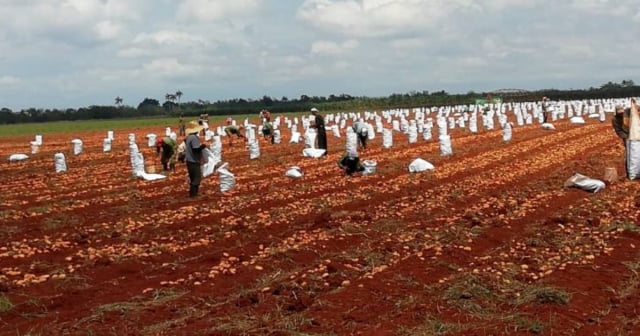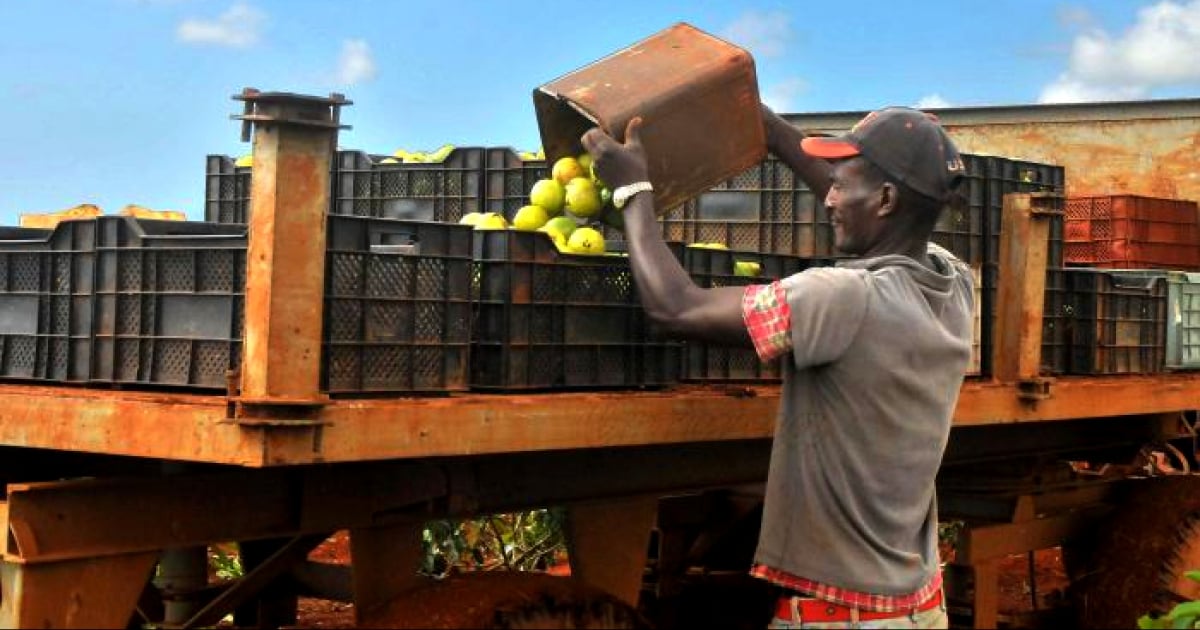
The state-owned company Acopio de Cienfuegos owes more than five million pesos to agricultural producers in that province, as reported this Friday on the National Television News (NTV).
Focused on the governmental visit carried out "to correct distortions and reboost the economy" and the words of Prime Minister Manuel Marrero Cruz, the report briefly mentioned the "unpaid debts of five million pesos to farmers."
The news report did not mention the responsible parties for the non-payment, nor the reasons for it, or the dates when the delays will be rectified. The reporter rushed through the information and also mentioned other problems afflicting farmers, "such as the increase in theft and slaughter that affects a decrease in the livestock population."
The State's debts to Cuban farmers date back years. The mistreatment suffered by agricultural producers is evident in the form of unpaid bills, obligations to deliver parts of the harvest, payments below production costs, lost harvests due to lack of transportation, and difficulties in purchasing fuel, tools, machinery, fertilizers, or seeds.
The farmers affected by these situations complain about the impossibility of increasing their production and yields, about how unsustainable it is to work the field under these conditions, and about the deterioration of their living conditions.
In February 2020, the non-governmental organization (NGO) Observatory of Economic Rights in Cuba estimated the state's debt to private farmers in billions of pesos.
In June 2020, the ruler Miguel Díaz-Canel announced that his administration was designing a policy to market agricultural products locally.
"I keep saying that Acopio cannot be the only mechanism, other structures need to be created. A sugar mill, where there are productive structures that will produce food, what is needed there is four or five people in a small structure that will be in charge of managing the purchase with the producers and putting it on the market," he explained in a video conference with the governors of all the provinces.
Four years later, the Cuban countryside remains largely subjected to the fluctuations of the policies of the leader appointed by General Raúl Castro, from the famous and ineffective "63 measures to increase food production in the country", to the absurd functioning of the socialist planned economy and its network of state-owned enterprises, such as Acopio.
In January 2022, it was reported that the Ciego de Ávila Acopio closed the month with over 100 million pesos in debt, of which 35 million were unpaid to farmers. Complaints from these individuals about the inefficiencies of the business group ranged from non-payment issues to tons of food going to waste due to lack of transportation.
A year later, the Minister of Agriculture replaced the president of the Business Group of Collection, Nelson Concepción de la Cruz, and stated that the leader had "accomplished enormous missions."
One cycle ends and another begins, closing the process of handing over and receiving the position of President of Acopio (...) calling for a new awakening of state functions and thanking those who have carried out tremendous missions in this tough battle of balancing state and private functions for the benefit of the Cuban people," Minister Ydael Pérez Brito said on his social media platforms.
In 2021, the Ministry of Agriculture (MINAGRI) called for "definitively solving the problem of non-payment to agricultural producers, to ensure greater incentives and avoid financial imbalances. Forms of commercialization that cannot solve this problem should disappear," recalled a Cuban farmer.
Leonel Capote denounced this, stating that the state company Acopio continued without paying a huge debt to the producers in the province of Artemisa, in western Cuba. Among those affected, Capote mentioned his cooperative, to which the Agricultural Company owed eight million pesos.
What are the so-called Collection Centers?
The Cuban Observatory of Conflicts (OCC) explained in May 2020 that "in Cuba, all farmers in the country are required to deliver the harvested products to those state centers, which pay them a pittance, store them, and then distribute them little by little, as they can."
That absurd centralizing system is composed of a bureaucratic-commercializing-interventor machinery of the State subordinate to the Council of Ministers, but in fact directed by the Communist Party in each province and municipality. It consists of 13 Collection companies with various facilities throughout the island. Collection arbitrarily sets the very low prices paid to farmers for their products," explained the NGO.
According to the OCC, "one of the most serious consequences of the Acopio system is that it pays very little for its products to farmers and land usufructuaries, who total more than 420,000 and generate almost 90% of the country's agricultural products."
This is a strong disincentive to produce more with higher quality. If private farmers could sell their products directly at prices set by themselves, according to market laws, there would be more food in Cuba, experts at the Observatory assessed.
For the OCC, "it is well known that every year, thousands and thousands of tons of agricultural products from the Cuban basic diet rot in the Acopio warehouses because there are not enough trucks, or they are broken."
Furthermore, in general, all the technical and operational infrastructure that Acopio has is obsolete and, above all, insufficient to expect to receive and distribute fresh food nationally, which the population so desperately needs," concluded the NGO in its study, where they denounced that the Deposit Centers were exacerbating hunger in Cuba.
What do you think?
COMMENTFiled under:
